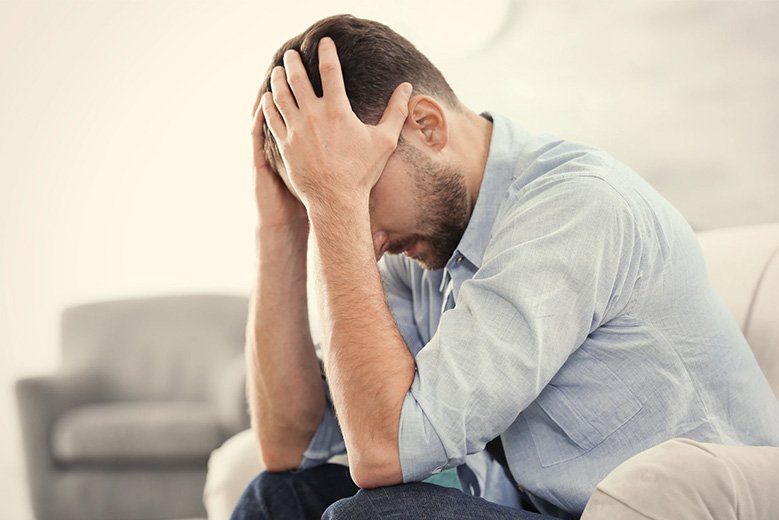Homeopathic Medicine for Anxiety/Depression
Our Treatments

Need Help Get In Touch Quickly
Depression /Anxiety
- Beneath the silence-Understanding Depression
- Depression isn’t always loud.It doesn’t always cry.A smile may hide it,a routine may carry it but inside weight grows heavy
- At Sahaj,we see depression not as a disease but as a soul’s cry for healing.

Causes
- Chronic Stress,loneliness,loss of purpose
- Hormonal fluctuations
- Post illness fatigue
- Suppressed identity or inner conflict
- Inherited emotional patterns
At Sahaj,we just don’t treat the ‘WHAT,we explore the ‘WHY’
Signs & Symptoms
- Persistent sadness
- Fatigue,disinterest
- Loss of joy in once loved activities
- Sleep disturbances or Excessive sleeping
- Changes in appetite,weight or physical energy
- Feelings of worthlessness,guilt,emotional heaviness
- Negative thoughts
- Disconnection from life
These are not signs of weakness.They are whispers of an exhausted spirit seeking light
Scopes of Homeopathy
Homeopathy becomes a balm for emotional wounds It Offers-
- Remedies tailored to your emotional fingerprint
- Healing gently without suppressing
- Support that strengthens your vital force
- A path back to authenticity, connection and vitality
Sahaj Approach
- When healing is personal and profound
- At Sahaj,we treat not just depression but the person lost inside it.
- We select remedies that reflects your mental emotional story not just your symptoms
- Compassionate case taking:We offer time,space and genuine presence to unfold what lies beneath the surface
- Integrated Emotional Healing:Guided journaling,reflective practices,gentle holistic techniques to support your journey
- Depression is not the end of the story.
- It is often beginning of more honest ,more whole chapter
- At Sahaj,we don’t offer shortcuts-We walk beside you as you slowly,steadily remember who you truly are.
- Your light is not lost
It is simply waiting,And we are here to help you find it again.
Frequently Asked Questions
How can I differentiate between depression and anxiety?
Depression often involves persistent sadness, a loss of interest in activities, and fatigue, whereas anxiety is characterized by excessive worry, restlessness, and a feeling of dread. It’s also possible to experience both conditions at the same time.
What are common symptoms of depression?
Symptoms include prolonged sadness, mood swings, difficulty concentrating, changes in appetite or sleep patterns, fatigue, and feeling hopeless or uninterested in daily life.
How does anxiety affect sleep?
Anxiety can lead to difficulty falling asleep, staying asleep, or waking up feeling unrefreshed. Racing thoughts and physical symptoms like a racing heart can disrupt sleep patterns.
Is it normal to feel physically tired when dealing with depression or anxiety?
Yes, fatigue is a common symptom. Depression can drain your energy and motivation, while anxiety often puts your body in a heightened state of tension, leaving you physically exhausted.
How can I manage mood swings associated with depression or anxiety?
Practicing mindfulness, engaging in regular physical activity, maintaining a consistent sleep schedule, and seeking support from friends, family, or professionals can help balance mood. Medication may also be recommended in some cases.
When should I seek professional help for depression or anxiety?
If symptoms persist for more than two weeks, significantly affect your daily life, or include thoughts of self-harm or hopelessness, it’s essential to reach out to a mental health professional.
Are there natural ways to cope with these conditions?
Yes, techniques such as meditation, yoga, deep-breathing exercises, journaling, and spending time in nature can help. Pairing these with a nutritious diet, regular exercise, and a strong support system can complement professional care.
PCOD
PCOD is a lifestyle linked hormonal disorder where ovaries produce multiple small cysts,leading to irregular ovulation and disturbances in Hormonal Harmony.
Arthritis
When body remembers pain too deeply. Every joint that aches holds a story of movement lost,unspoken emotions ,of a life waiting to flow again
Kid’s Immunity
Little Noses,Big battles. In tender world of childhood, runny noses, lingering coughs, late night sneezesbecome unwelcomed guests.
Indigestion/Acidity
The stomach is your second brain,emotional compass,our fire centre. At Saha,we believe indigestion and acidity aren’t just about food.
Depression /Anxiety
Depression isn’t always loud.It doesn’t always cry. A smile may hide it,a routine may carry it but inside weight grows heavy
Mental Disorders like Fear
Unveiling the shadows within Fear hides in the corners of the mind sometimes silent sometimes roaring
Skin diseases
Acne, Eczema, Psoriasis, Rashes, Itching, Fungal Infections. Acne, Eczema, Psoriasis, Rashes, Itching, Fungal Infections
Constipation
When the body holds on. Healing flow of life with Sahaj way. Not all burdens are emotional,some settle quietly in the gut.
Menstrual Irregularities
Irregular Periods, Heavy Bleeding, Missed Cycles, Painful Cramps, Hormonal Imbalance, Spotting
Asthma
The sound of wheezing,endless puff of inhalers can be overwhelming. But Asthma is more than just a respiratory issue,it’s the body’s way of saying ‘I ‘m Struggling to cope.’
Allergies
When the body says NO – Understanding, Allergies, A sneeze that won’t stop, Eyes that itches, Skin that flares without warningA tumm that rebels after every meal
Migraine
A migraine isn’t a headache.Its a cry from the nervous system often misunderstood and mistreated.












